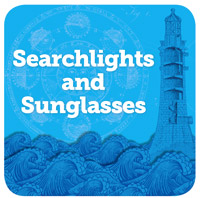
New digital book on journalism’s future is call for change and teaching tool
As the managing editor of the Oakland Tribune, Eric Newton was never far from the public. There were community advisory groups, “Meet the Editor” nights and an “open newspaper” philosophy championed by the Maynard Institute.
In those sanguine days before the Web, quite a few newspaper folk considered the Tribune’s community engagement the antics of a far-out California newspaper. Now, considering the seismic shifts in the way people produce and get their information, it all seems rather quaint. No one realizes that better than Newton, who has been at the epicenter of the changes in journalism over the past three decades. Related Links
Continue the conversation with #edshift and at edshift.org.
Free Poynter webinar Oct. 28: “Six things educators can do right now to go digital.”
“A journalism problem you haven’t considered: Education” an Op-Ed by Eric Newton
“Eric Newton: Journalism education isn’t evolving fast enough, and you should help change that” on Nieman Lab
“New from The Knight Foundation: A Free J-School Self-Help Book” on MeidaBistro
He co-created the Newseum, literally shaping the history of news. Later, he helped Knight Foundation invest more than $300 million to advance quality journalism and media innovation. Today, Newton is sharing his perspective—his field notes—with a new digital book on the major challenges facing journalism and its future.
“Searchlights and Sunglasses” is a digital expedition that draws on everything from Ancient Greece to science fiction writers to place the industry’s evolution in perspective. It also pushes journalists and educators to better blend traditional journalistic values with digital age platforms. It urges them to go beyond comfort news, to take advantage of new tools to both inform and engage the public, and to make sure today’s journalism students are ready for tomorrow’s digital jobs.
That last point is perhaps the most important part: “Searchlights and Sunglasses: Field Notes From the Digital Age of Journalism” is not just a call for change but an example of that change. More than 1,000 lesson plans, resources and tools for educators are embedded in the HTML5 site. Newton developed this “learning layer” in partnership with the Reynolds Journalism Institute at the University of Missouri, where he is a fellow.
So when Newton touches on media policy, investigative reporting and the open data movement, the book offers classroom exercises from the high school to the college level. Instead of merely making the case that journalism education needs to change, as Newton has advocated over the past few years, he decided to provide a tool to help educators do just that.
It’s “show, not tell,” as he likes to say. And it’s born of necessity. After talking with journalism educators over the past few years, he saw them having to forage on the Web for ideas to supplement their aging textbooks. One high school teacher told him her administration even prohibited her department from using traditional texts.
Because the industry is changing so quickly, “Searchlights and Sunglasses” is a dynamic document, which Newton plans to update as journalism evolves.
Already, the book, also available via Kindle, has received praise from both journalists and educators incorporating it in their classrooms. They have called it a “must read” for the field, an example of how “cutting-edge technology can be used to achieve the best pedagogical results,” and a “highly critical … and wholly on point critique of the state of journalism education.” Over the next week, several educators will blog on our site about their favorite ways to use the book.
To complement this effort, Knight and three other leading funders today are announcing a $1 million challenge fund for teaching hospital experiments at j-schools that pair professionals and students. ONA will administer the fund. Expect to see applications available in November.
One of my favorite things about the book is its title. While news organizations have thought of themselves as searchlights for truth, Newton argues that today’s journalists need to act more like a good pair of sunglasses, filtering, verifying and curating the news.
With this book, Newton is offering us news junkies his virtual Ray-Bans.
Marika Lynch, a former journalist, is a communications consultant for Knight Foundation.
Recent Content
-
Journalismarticle ·
-
Journalismarticle ·
-
Journalismarticle ·


